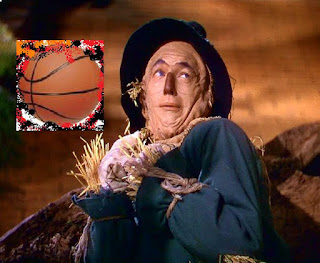A scorpion, being a very poor swimmer, asked a turtle to carry him on his back across a river. "Are you mad?" exclaimed the turtle. "You'll sting me while I'm swimming and I'll drown."
"My dear turtle," laughed the scorpion, "if I were to sting you, you would drown and I would go down with you. Now where is the logic in that?"
"You're right!" cried the turtle. "Hop on!" The scorpion climbed aboard and halfway across the river gave the turtle a mighty sting. As they both sank to the bottom, the turtle resignedly said:
"Do you mind if I ask you something? You said there'd be no logic in your stinging me. Why did you do it?"
"It has nothing to do with logic," the drowning scorpion sadly replied. "It's just my character."
 |
| Joe Hill |
I belong to the
Bloomfield Education Association, the
NJEA, and the
NEA--none have behaved admirably the past couple of years, but they have done what unions are supposed to do. I pay them a lot of money to do this, and I'll just smile here and pretend everything's hunky-dory. That's how the rank and file are supposed to roll.
A lot of teachers are frustrated, but that's part of being in any profession that deals with embryos that pretty much do what they do, no matter what the President, the Pope, or the PTA say. We can handle frustration.
What we cannot tolerate is our erosion of autonomy.
The union fights for dollars, benefits, hours
(ha!), and reasonable working conditions. It does not fight for the kids. Not saying it should (though if the NEA could grab $15/year/kid I bet it would), but let's be clear on what the union does. It serves a clear and necessary function, as do septic tanks and sergeants.
If a colleague of yours is accused of doing something unseemly with a student, the union lawyers will defend him, no matter what the circumstances. We pay the scorpions to be scorpions, and I'm OK with that.
Just don't expect them to be anything they're not.
***
In medicine, I almost got to fisticuffs twice--and I still regret not punching a particular colleague in the nose
(/me waves to Barry).
Cooler heads prevailed, and instead we tossed journals at each other.
P values, corroborated studies, prospective
vs. retrospective, controlled
vs. anecdotal, meta-analysis
vs. multiple studies. A lot of medicine is as mucky and murky as Chicago politics, but we worked with what we had, and we had a common goal: fix the kids.
If a child died, we all lost.
I don't get the sense that my current profession fears damage to children more than damage to ourselves. We say the right things, but our behavior is what matters.
If a hospital administrator ever tried to pawn the stuff masquerading as "research" in the ed world, we would have simply laughed. Despite organizational charts on paper, we knew as the ones directly giving care that we held the power. Laughter has a way of democratizing a workplace.
Instead I get a union that put this on the cover of
NJEA Review last September:
 |
| Mikey don't play that way..... |
A profession can survive a crisis in faith, as long as our faith is shared. It cannot survive a lack of vision.
A profession can survive bad research, as long as the research can be assessed honestly. It cannot survive bad research used dishonestly.
We're either professionals. or we're not. It's our behavior, not our words, that matter.
***
The union is designed to protect our jobs, not our profession. That's up to us.
I have an idea. Why not develop guilds to complement our unions?
- We have a common cause, educating our children.
- We have common methods, subject to peer-reviewed research.
- We have common goals. Within a building we know who's got game.
No more fear. No more fear. No more fear. No more fear.
***
In two weeks, licensed NJ professional high school teachers will proctor the
HSPA, our alms to NCLB. We will grumble, we will bark, and we'll still hand out the tests.
 |
| Arne has not earned our love. |
Some of us might even feel dirty, though most of us will just do what we do because we're told to do it.
That's not professionalism.
***
I'd like a colleague to be passionate enough, mad enough, care enough to punch me in the nose if my actions endanger a child.
Look at your classroom. Look at your students. Look at your actions.
Here in New Jersey we are in real danger of losing our union protections within the next two years. A few of us will lose our paychecks no matter what we do.
I propose that we work together to do what's best for our kids. We can hash out just what that might be privately, and a few noses might get bloodied. The only hard rule is that we act what we believe matters for our kids, not ourselves.
Isn't that why you got into this profession?
If you're happy and you know it, clap your hands....



















































